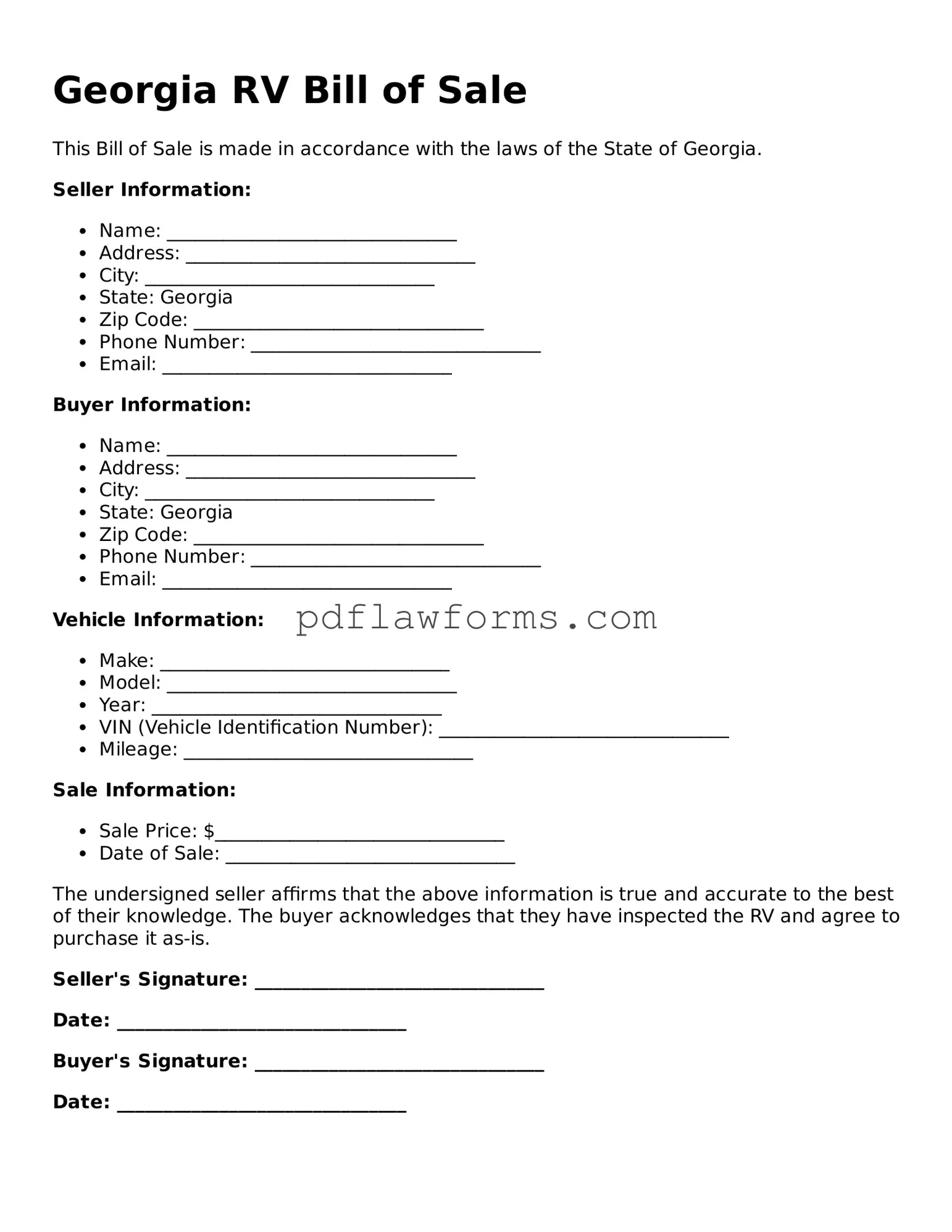Filling out the Georgia RV Bill of Sale form can be straightforward, but many people make common mistakes that can lead to complications later. One frequent error is failing to include all required information. Essential details like the buyer's and seller's names, addresses, and signatures must be present for the document to be valid.
Another mistake often seen is not providing the correct Vehicle Identification Number (VIN). The VIN is crucial for identifying the RV and ensuring that it matches the vehicle being sold. Omitting or miswriting this number can create confusion and potential legal issues.
Many individuals also overlook the importance of accurately documenting the sale price. This figure should reflect the actual transaction amount. Understating or overstating the price can lead to problems with taxes or future disputes.
It’s also common for people to skip the date of the sale. This date is significant as it marks the official transfer of ownership. Without it, there may be ambiguity regarding when the transaction took place, complicating any future claims or registrations.
Some sellers forget to include any existing liens on the RV. If there are outstanding loans or claims against the vehicle, these must be disclosed. Failing to do so can result in legal repercussions and financial liability.
Improperly formatting the document can also cause issues. The form should be filled out neatly and legibly. Illegible handwriting can lead to misunderstandings and disputes about the terms of the sale.
Not providing copies of the bill of sale to both parties is another common oversight. Each party should retain a copy for their records. This ensures that both the buyer and seller have proof of the transaction.
Many people forget to have the bill of sale notarized. While notarization is not always required, it can add an extra layer of protection and legitimacy to the document. A notary can help verify the identities of the parties involved.
Another mistake is neglecting to check local regulations regarding RV sales. Different counties may have specific requirements or forms that need to be completed. It’s essential to be aware of these to avoid any legal issues.
Lastly, some individuals fail to read the entire form before signing. It’s crucial to understand what you are agreeing to. Taking the time to review the document can prevent misunderstandings and ensure a smooth transaction.

